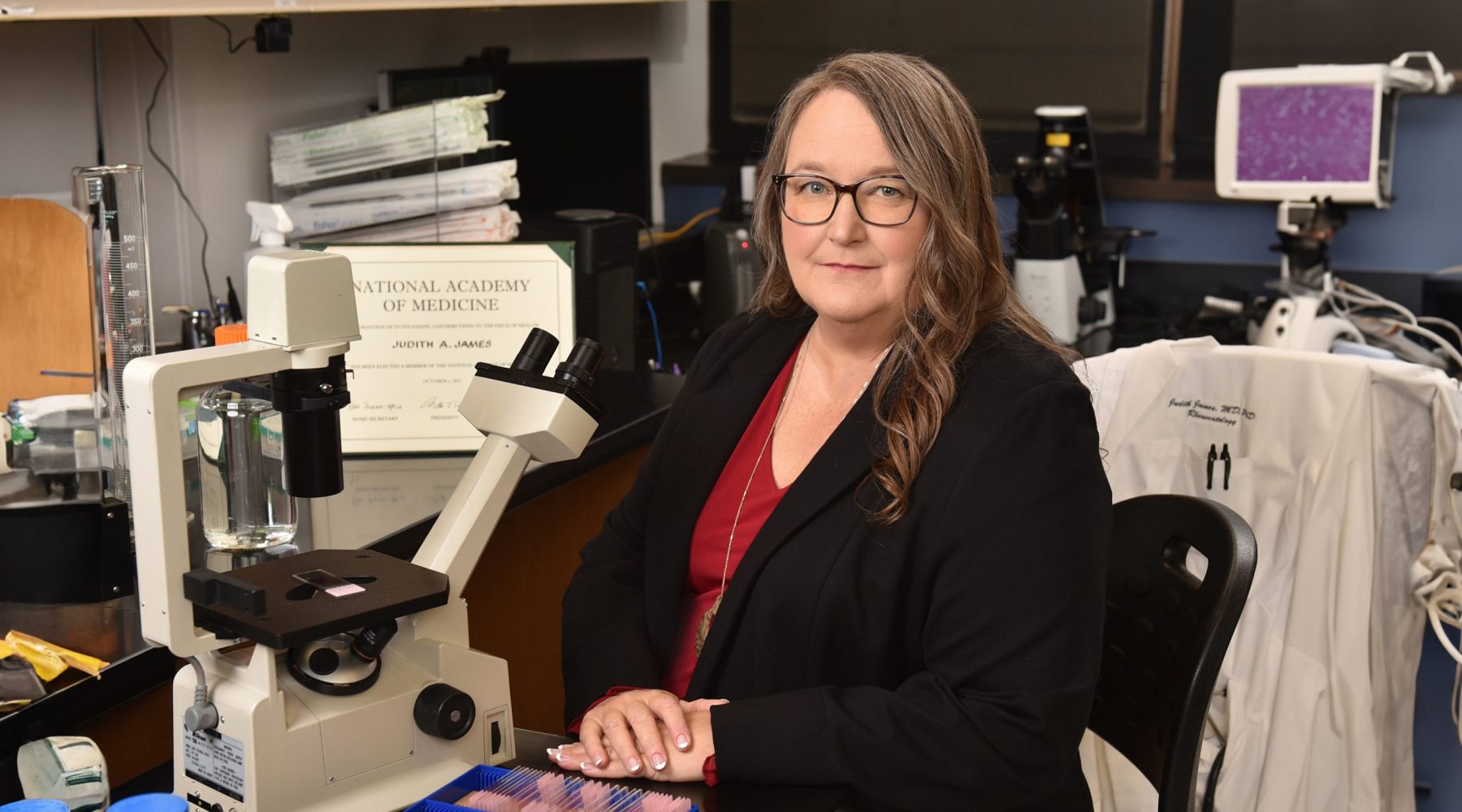The nation’s largest medical specialty organization honored the Oklahoma Medical Research Foundation’s executive vice president & chief medical officer Thursday.
Judith James, M.D., Ph.D., received the American College of Physicians’ Harriet P. Dustan Award for Outstanding Work in Science as Related to Medicine.
The award, presented during the group’s annual meeting, was the latest in a series of accolades for James, who last year was inducted into the National Academy of Medicine and the Oklahoma Hall of Fame.
The ACP represents internal medicine physicians and counts members in more than 145 countries. Established in 1958, the Harriet P. Dustan Award recognizes an internal medicine physician for their work in science related to medicine. Physician-scientists from any country and any field are eligible.
James is internationally renowned for her research in autoimmunity, when the body mistakenly turns its immune system against itself. James has done pioneering work in the prediction and treatment of lupus and other autoimmune diseases, which affect an estimated 25 million Americans.
Three colleagues nominated her for the ACP honor: Michael S. Bronze, M.D., chair of the University of Oklahoma College of Medicine; Mary Beth Humphrey, M.D., Ph.D., associate dean of research at the OU Health Sciences Center; and James H. Baker, M.D., medical director of the Cherokee Nation Three Rivers Health Center.
James, a board-certified rheumatologist, has brought “tens of millions of dollars” to Oklahoma in the form of National Institutes of Health grants, Bronze said. He also noted her commitment to mentoring, which has helped “to ensure the pipeline of clinical scientists” in the state.
Baker cited the five-hour round-trip drive James frequently makes to his Muskogee clinic to diagnose and treat an underserved population suffering from autoimmune diseases. “Reading over her 83-page curriculum vitae,” he wrote, “I am amazed that I personally know this world-renowned researcher.”
Humphrey noted that James holds multiple patents to help predict disease flare in lupus. James, she said, has “contributed significantly to a paradigm shift in our understanding of environmental and genetic factors that promote autoimmunity.”



